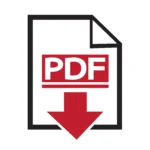AUTHOR:
Tamara Kozak
ABSTRACT:
The article is dedicated to analising the theoretical and methodological preconditions and empirical factors and consequences of the relationship between language and politics, as well as the parameters of language competition in international relations. This was done on the example of structuring the linguistic and interlingual situation in international relations in the European Union at the time of its last enlargement. To do this, the author highlighted the peculiarities of the structuring of interlingual (including interinstitutional ones) issues in the EU, and then proposed options for languages and language systems at the level of relations between the EU member and within theEU institutions. As a result, it was shown that language competition is inherent in the EU as a whole, although today English certainly dominates, even at the background of Brexit. Therefore, it was theoretically concluded that reducing the distance between the status of leading and non-leading languages within the EU increases dis- satisfaction with the multilingualism policy, while increasing the distance contributes to the multilingualism policy.
DOWNLOAD FULL ARTICLE:

